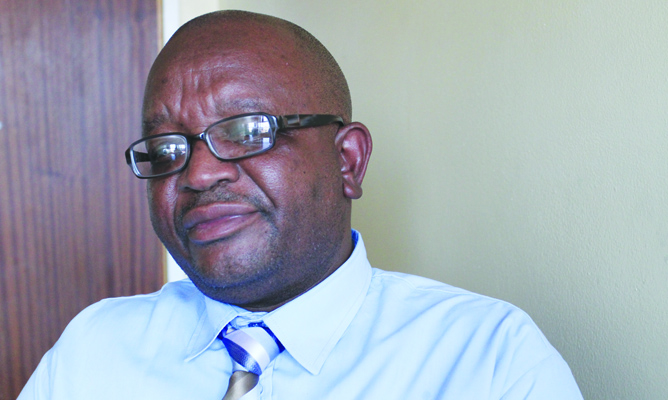
AS Hungary held general elections in April 2018, the Organisation for Security and Co-operation in Europe (OSCE), deployed observers to monitor the elections.
By Tapiwa Nyandoro
The OSCE was highly critical of the way the elections had been conducted; issuing a statement that among other things “claimed the campaign was marked by intimidating and xenophobic rhetoric, media bias and opaque campaign financing”. To add to the unfairness, The Economist (April 14, 2018 —Viktor Victorious) reported that public television clearly favoured the ruling coalition.
On the positive side, the OSCE said that “fundamental rights and freedoms were respected overall” and that election day organisation was professional and transparent; even though some Hungarian media outlets reported a few anomalies. Predictably a government spokesperson accused the OSCE of over-stepping its mandate which he felt should have followed procedural issues. That is where the analogy with Zimbabwe is likely to end, assuming (Zec) performs well on election day. While every thing that wasn’t good, from intimidation, to opaque campaign financing, to media bias is being replicated in Zimbabwe towards the July 30 elections, the socio-economic landscape is radically different.
Given the vibrant socio-economic climate, and it must be acknowledged, the campaign message, the Hungarian ruling party romped home in the plebiscite, winning 134 seats of the 199 on offer. Right wing ideology aside, analysts felt most Hungarians voted with their wallets: the economy is growing at a robust 4% per annum fuelled by EU subsidies that are as much as 6% of GDP.
The aggrieved parties at the receiving end of the unfairness in the electoral playing field may wonder at the point of having election observers, and how the observers collate and, or process their data to arrive at a verdict.
Do subjective criteria override objective criteria, if any? And what use really is election observers, if unfair practices, such as opaque financing of campaigns, opaque printing of ballot papers and media and TV bias, are carried out under their very noses?
The 6% EU subsidy could have been reduced to 4% to encourage better behaviour from Budapest in future. But such punishment hurts the poorest and the innocent, in any society, the most. However, the behaviour by the ruling party in Hungary feeds calls for exiting from the EU in richer countries to escape the burden of the subsidies to poor and delinquent countries. In the case of Zimbabwe, the noose is a bit tighter.
- Chamisa under fire over US$120K donation
- Mavhunga puts DeMbare into Chibuku quarterfinals
- Pension funds bet on Cabora Bassa oilfields
- Councils defy govt fire tender directive
Keep Reading
There is no formal subsidy from the West, and more help, in cash and kind, is needed urgently as the economy collapses. That looks like it has been incentive enough for the ruling elite and party to moderate its behaviour. As a result the West has been invited to observe the elections at the end of the month.
The Hungarian outcome suggest the Observers are likely to give a verdict the authorities in Harare can live with, assuming of course, they come out winners thanks to opaque financing of campaigns, media bias and previous ruthless intimidation in the rural areas. Another asset of course, is their stated (eg land grabs) and unstated (eg xenophobia, racism, politics of patronage) campaign messages.
Viktor Orban, the Hungarian Prime Minister, and his right wing party, Fidesz, swept back to power on April 8 for the third time in a row, thanks “to an ugly but effective campaign that focused almost entirely on supposedly threats to Hungarian sovereignty from the EU, the United Nations, and even one of its sons, billionaire George Soros.
The prime minister is tough on immigration and his vision is of an “illiberal democracy”. His policies are said to doubtlessly deepen Hungary’s cultural and generational divide, hopefully in the process planting the seeds for their own demise in the future.
Meanwhile, he intends to push for a Europe of sovereign states and oppose development towards “the United States of Europe”. Like Zanu-PF, his support base is in the elderly and in rural areas. The capital city, Budapest voted for the opposition.
Although not many Zimbabweans know it, the Zanu PF elite turned down Samora Machel when he proposed to unite Mozambique and Zimbabwe after the end of the Zimbabwean war of liberation.
Further more, Udo Froese, a State media columnist, if he is to be believed, once suggested the Zimbabwe military opposed regional integration, if that involved the pooling of sovereignty.
Unlike for the Hungarians, the reason for Harare’s stance may be due to oligarchic aspirations, to be furthered by hook or by crook, as opposed to just cultural and nationalistic passions.
The strategic importance of this piece of knowledge should have been obvious to opposition think tanks for some time, especially given the circumstances the economy finds itself in.
To oppose Orban’s self destructive nationalist demagoguery, which has quite a few admirers in Europe, Zimbabwe and other Sadc countries, the opposition in his country needs more than election observers.
It needs to change campaign strategy as Tony Blair and Gordon Brown did for new Labour (party) in the UK. Advice from one of the victors from the ruling party to the defeated liberals and leftists was to the effect that the opposition needed to give up “its exhausted proposals to undo everything the ruling party has done, and re-think what it means to be left wing and Hungarian”.
That looks like good advice to the opposition in Zimbabwe as well. The opposition’s message on how it intends to deal with the new hyena class in Zimbabwean society has been muted. In their other secret book, some election observers may report as much to their governments. That is, of course, unless the prevailing economic climate, ruthless as it is, has done its job.
Tapiwa Nyandoro writes in his personal capacity











